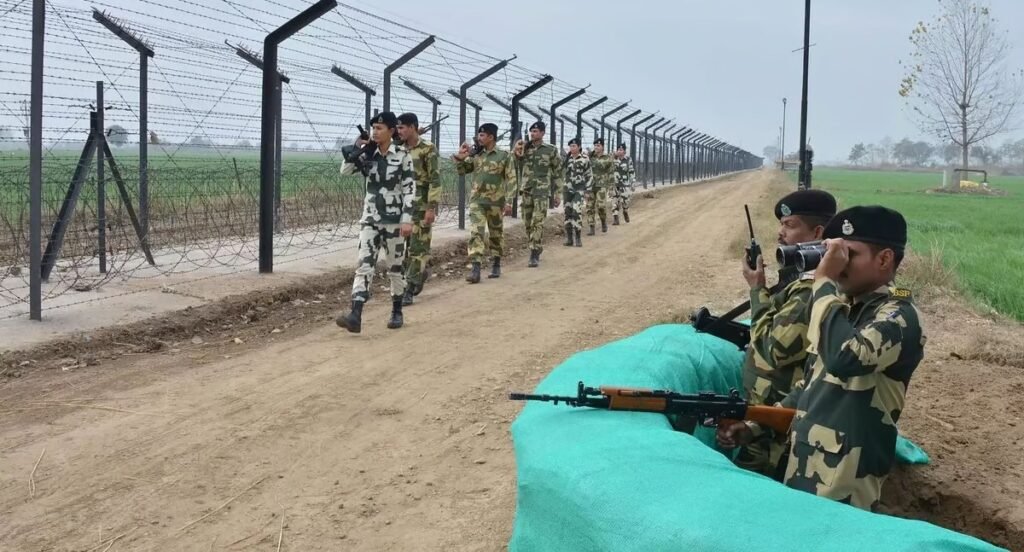
The recent construction of the Indo-Bangladesh border fencing in the South Garo Hills of Meghalaya has led to a significant and alarming development. According to reports, at least 82 households from the Rongara-Siju constituency have been forced to relocate into the “no man’s zone,” which is the area that sits between the formal borders of the two countries. This area is frequently a source of logistical and legal uncertainty because it is typically regarded as neutral territory with no established jurisdiction. Particularly from Rakkam Sangma, the Cabinet Minister and local MLA of the impacted area, the relocation has drawn criticism and worries.
Sangma has openly declared that these people were unintentionally relocated as a result of the border fence’s construction not following accepted conventions and procedures. His comments raise the possibility that there were serious errors or miscalculations made throughout the project’s conception and implementation. A large portion of the barrier, according to Rakkam Sangma, was constructed farther than the legally mandated 150 yards from the zero line, which marks the formal border between Bangladesh and India. This mistake has resulted in some Indian territory accidentally ending up on the Bangladeshi side. In order to ensure that the displaced family is returned to their homes, he further stated that he intends to bring this matter before the Home Ministry.
He also underlined how important it is to keep the families safe, since they fear being falsely identified as Bangladeshis. A significant portion of the 443-kilometer Indo-Bangladesh border in Meghalaya is still unfenced, despite ongoing fencing efforts. The problem goes beyond simple physical relocation; it also involves concerns about how the impacted families are treated and how this may affect their rights and means of subsistence in general. Pushing a family into a “no man’s zone” can result in them losing access to security, legal protections, and basic amenities, leaving them in a precarious and vulnerable situation.
